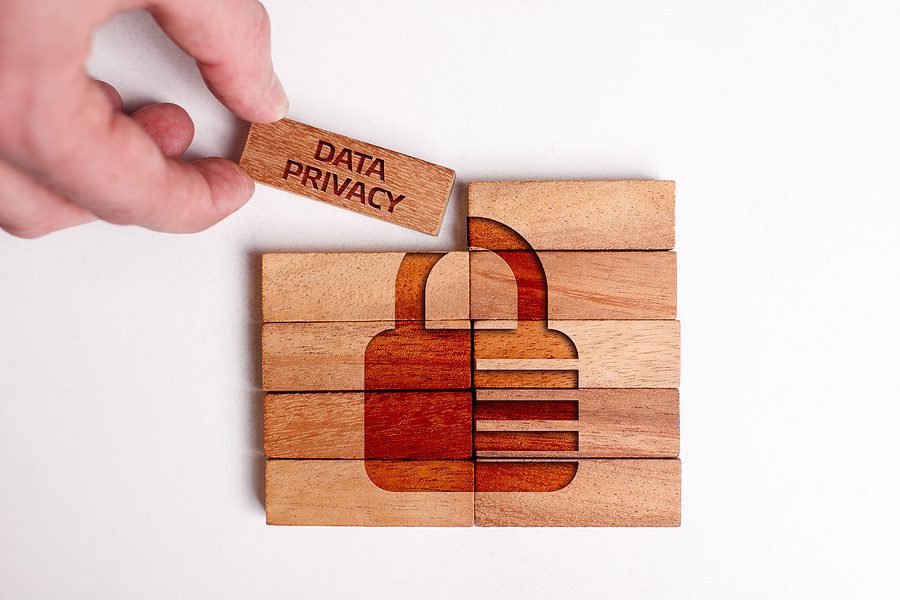The advancement of field service management software has enabled businesses to efficiently manage their operations in the field. But with that increased efficiency comes a need for data security and privacy measures to protect customer information.
In this article, well explore how data security and privacy play an important role in keeping customers data safe while using field service management software. We will discuss the various benefits of implementing secure systems, as well as potential risks associated with inadequate protection measures.
Finally, we will examine best practices for ensuring that your companys customer information is secure when using such technology.
Introduction to Data Security and Privacy in Field Service Management Software

In todays world, data security and privacy have become increasingly important for businesses using software to manage their field service operations. Field service management software is responsible for managing customer requests, scheduling resources and technicians, tracking job progress, and maintaining up-to-date records of both the activities performed in the field as well as the assets managed within an organization.
As such, it is essential that these systems are secure from external threats while also protecting user privacy. This article will provide an introduction to data security and privacy in field service management software so you can understand why they are needed and how they can be implemented into your business operation. Data security encompasses a wide range of practices including authentication protocols, encryption techniques, malware protection methods, access control policies and other measures used to protect data from unauthorized access or misuse.
Privacy refers to the rights of individuals when it comes to controlling who has access to personal information about them or any activity related with them online or offline. It also involves limiting unnecessary collection of personal data by organizations collecting this type of information from customers or employees alike.
When discussing data security in regards to buildops field service management software systems there are several key considerations which must be taken into account: authentication requirements for users accessing sensitive information; encryption strategies for transmitting confidential messages over public networks; antivirus solutions designed specifically for mobile devices; proper logging procedures ensuring all actions carried out on system databases remain tracked; regular backups helping ensure no valuable asset gets lost due its malicious destruction through cyber attacks; deployment processes that follow industry standards regarding patching vulnerabilities at regular intervals among many others aspects aiming towards keeping a high degree of safety when handling confidential enterprise information stored inside cloud databases accessible through company owned applications installed on employee’s smartphones or tablets running either Android OS or iOS operating systems..
Benefits of Data Security and Privacy
 Data security and privacy are essential components in field service management software. By proactively protecting data, companies can ensure that the information stored within their systems is kept safe from malicious actors.
Data security and privacy are essential components in field service management software. By proactively protecting data, companies can ensure that the information stored within their systems is kept safe from malicious actors.
Having comprehensive data security features built into the system makes it easier for organizations to meet these requirements without incurring hefty fines or damaging reputations due to non-compliance issues.
Investing in strong data privacy protocols helps lessen the chances of such incidents occurring in the first place while also keeping costs low over time by avoiding expensive remediation efforts down the road should an incident occur despite best efforts at prevention beforehand.
Challenges of Implementing Data Security and Privacy

Implementing data security and privacy in field service management software can be a challenging endeavor. Companies must balance the need for sensitive information to remain secure while still allowing their staff access to the necessary tools they need to do their job.
Data encryption, authentication protocols, and two-factor authorization are all important components of data security and privacy that must be carefully implemented into the system architecture. Moreover, organizations should consider implementing measures such as user monitoring or audit trails which may help detect any unauthorized activities on the system in real time.
Finally, as technology evolves so too will cyber threats, making it essential for companies to establish an up-to-date process for regularly assessing and updating their security protocols accordingly. With these considerations taken into account, businesses can ensure that both data security and privacy is safeguarded within their field service management software system.
Guidelines for Ensuring Optimal Data Protection
Data security and privacy are essential for organizations that use field service management software. To ensure optimal data protection, businesses should take the following steps:
- Establish a security policy with clear guidelines on acceptable usage of data and how it is to be stored. This can include encrypting all sensitive information, setting password requirements for access, and periodic reviews of who has access to the data.
- Utilize multi-factor authentication (MFA) when accessing or transferring data as an extra layer of protection against potential hackers or malicious actors. MFA requires additional verification beyond just username/password combinations such as biometrics or one-time passwords sent via SMS or email before granting access to protected systems and files.
- Implement regular training sessions for employees in order to keep them up-to-date on best practices in handling customer information safely, including procedures like proper disposal of physical documents containing personal details when they’re no longer needed by the organization.
- Regularly audit internal processes related to data storage and transmission in order to identify areas where improvements need to be made in terms of security measures taken by the company’s staff members while using any type of FSM software solution from third parties vendors; this includes checking if all required licenses are up-to-date at all times too.
- Make sure you have adequate backup plans for your organizations critical digital assets so that operations can continue even if an attack does occur – these backups could include both cloud storage solutions as well as local hard drive storage options depending on what works best for your specific business needs .




